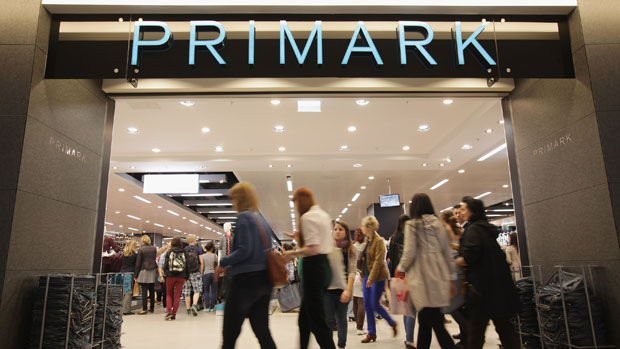How Primark went from £650m sales to nothing in one month
Owner says clothing chain has been ‘squarely in the path of pandemic’

A free daily email with the biggest news stories of the day – and the best features from TheWeek.com
You are now subscribed
Your newsletter sign-up was successful
The impact of the coronavirus has seen Primark go from making £650m in sales a month to nothing, says the owner of the clothing chain.
As lockdown measures forced it to close stores, Associated British Foods (ABF) said Primark “has been squarely in the path of this pandemic”.
Announcing that the chain has written down the value of its clothing stock by £284m, boss George Weston said: “From making sales of £650m each month, since the last of our stores closed on 22 March, we have sold nothing.”
The Week
Escape your echo chamber. Get the facts behind the news, plus analysis from multiple perspectives.

Sign up for The Week's Free Newsletters
From our morning news briefing to a weekly Good News Newsletter, get the best of The Week delivered directly to your inbox.
From our morning news briefing to a weekly Good News Newsletter, get the best of The Week delivered directly to your inbox.
He said that he would “love” to be able to reopen Primark stores but added: “I know that we must not do so until we have suppressed this disease.”
–––––––––––––––––––––––––––––––For a round-up of the most important stories from around the world - and a concise, refreshing and balanced takeon the week’s news agenda - try The Week magazine. Start your trial subscription today –––––––––––––––––––––––––––––––
ABF said it plans draw on government programmes to provide income for employees no longer working and is seeking discussions with landlords for help with lease payments.
The owner said that internal cost-cutting measures, combined with business rates relief, should allow it to recover some 50% of Primark’s total operating costs.
A free daily email with the biggest news stories of the day – and the best features from TheWeek.com
Commenting on the moves, Richard Hunter, head of markets at Interactive Investor, told City AM: “AB Foods has produced a measured response to the effects of the pandemic, battening down the cost hatches wherever possible and consolidating those parts of its business where some sort of earnings visibility is still possible.”
The Daily Mail says a survey from the British Chambers of Commerce shows around one in three British businesses has furloughed between 75% and 100% of its workforce.
-
 The Olympic timekeepers keeping the Games on track
The Olympic timekeepers keeping the Games on trackUnder the Radar Swiss watchmaking giant Omega has been at the finish line of every Olympic Games for nearly 100 years
-
 Will increasing tensions with Iran boil over into war?
Will increasing tensions with Iran boil over into war?Today’s Big Question President Donald Trump has recently been threatening the country
-
 Corruption: The spy sheikh and the president
Corruption: The spy sheikh and the presidentFeature Trump is at the center of another scandal
-
 What's Jeff Bezos' net worth?
What's Jeff Bezos' net worth?In Depth The Amazon tycoon and third richest person in the world made his fortune pioneering online retail
-
 'Brain drain' fear as record numbers leave New Zealand
'Brain drain' fear as record numbers leave New ZealandUnder The Radar Neighbouring Australia is luring young workers with prospect of better jobs
-
 Ghost kitchens are pulling a disappearing act
Ghost kitchens are pulling a disappearing actunder the radar The delivery-only trend is failing to live up to the hype built up during the pandemic
-
 The birth of the weekend: how workers won two days off
The birth of the weekend: how workers won two days offThe Explainer Since the 1960s, there has been talk of a four-day-week, and post-pandemic work patterns have strengthened those calls
-
 Why household wealth took off during the pandemic
Why household wealth took off during the pandemicUnder The Radar The Covid-19 pandemic caused a lot of pain and hardship, but new research shows it also left most Americans wealthier
-
 Empty office buildings are blank slates to improve cities
Empty office buildings are blank slates to improve citiesSpeed Read The pandemic kept people home and now city buildings are vacant
-
 Inflation vs. deflation: which is worse for national economies?
Inflation vs. deflation: which is worse for national economies?Today's Big Question Lower prices may be good news for households but prolonged deflation is ‘terrible for the economy’
-
 America's 'cataclysmic' drop in college enrollment
America's 'cataclysmic' drop in college enrollmentToday's Big Question "The slide in the college-going rate since 2018 is the steepest on record"